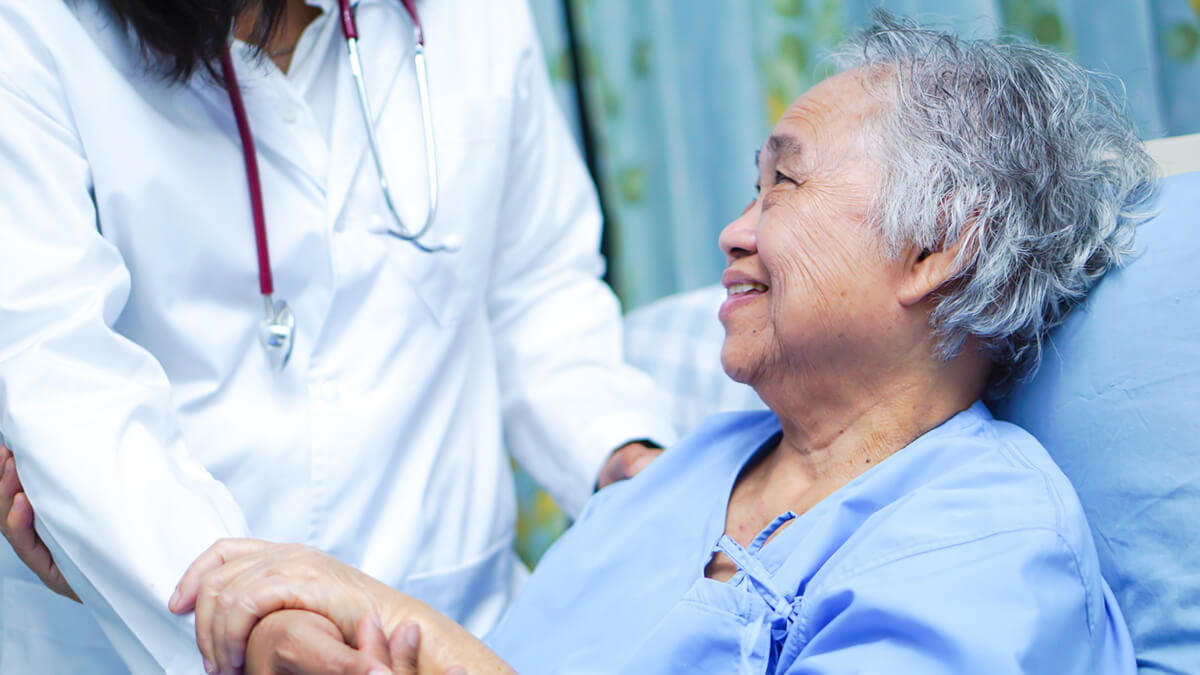We have high expectations when looking for doctors and nurses to deliver our care, and not every healthcare provider passes muster. We look for strong skills, compassion, good communication, knowledge, and—in many cases—a humanistic approach to care.
Humanism in Healthcare
For those unfamiliar with the term, humanistic medicine is an approach that seeks to understand the patient as a person, focusing on individual values, goals, and preferences with respect to clinical decisions.1 This patient-centered care involves listening to patients, understanding their individual values, and providing care with a human touch.
Doctors, nurses, and medical professionals point out that there are a range of obstacles to incorporating more humanism into medical care.2 These include:
- Limited time for doctors and nurses to spend with patients.
- High patient volume.
- Technological barriers between healthcare providers and patients.
- Fatigue on the part of doctors and nurses.
- Lack of proper training on humanism in medical and nursing school programs.
Despite these barriers, some of today’s medical and nursing schools are increasingly applying new selection criteria to seek out students who will become compassionate doctors and nurses. This includes looking beyond a student’s test scores to also take into account their personal interests, activities, experiences, and volunteer history.
In addition, medical schools and nursing school programs have made changes to their curricula and residency programs to help every aspiring doctor, registered nurse, and nurse practitioner speak with patients, so they can understand how social, community, and environmental issues impact an individual’s health. Likewise, service project requirements in medical programs and master’s in nursing programs can help students develop empathy for patients from a range of backgrounds.
Today’s doctors and nurses are also seeing changes in patient rooms, from new considerations for preventing computers and medical equipment from becoming a barrier between staff and patients, to the movement toward more single-patient rooms to ensure privacy. The goal of these changes is to earn patients’ trust, get patients more involved in caring for their own health, and reach better health outcomes.
Advance Your Practice With an MSN Degree
If you’re looking to make the transition from RN to MSN or BSN to MSN with the convenience and flexibility offered by online nursing schools, consider Walden University. Walden offers a Master of Science in Nursing (MSN) program designed to help you get the career in nursing you want. Whether you’re looking to become a nurse practitioner or are considering a career in nurse management, Walden can help you pursue your goals and gain the skills you need.
There are many MSN programs out there, but only Walden is number one in Master of Science in Nursing graduates in the U.S.3 In addition, with Walden you can earn your master's in nursing online from a teaching faculty that is 100% doctorally prepared. Choose from eight specializations: Adult-Gerontology Acute Care Nurse Practitioner, Adult-Gerontology Primary Care Nurse Practitioner, Family Nurse Practitioner, Psychiatric-Mental Health Nurse Practitioner, Public Health Nursing, Nurse Executive, Nursing Education, and Nursing Informatics.
Learn more about humanistic healthcare and how you can earn your Master of Science in Nursing from an online nursing school. With a flexible online learning platform that works for your busy schedule, Walden University lets you earn a degree at the pace that’s right for you. Walden’s MSN degree program can take practicing nurses to the next level in their career.
Walden University is an accredited institution offering a Master of Science in Nursing (MSN) degree program online with a specialization in Nursing Education. Expand your career options and earn your degree using a convenient, flexible learning platform that fits your busy life.
1Source: www.nejm.org/doi/full/10.1056/nejmp0904813
2Source: www.hopkinsmedicine.org/leading_the_change/articles_columns/practicing-humanistic-medicine.html
3Source: National Center for Education Statistics (NCES) IPEDS database. Retrieved July 2017, using CIP code 51.3801 (Registered Nursing/Registered Nurse). Includes 2016 preliminary data.
Walden University is accredited by The Higher Learning Commission, www.hlcommission.org.




